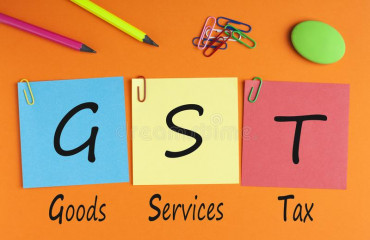
Any stock market discounts future possibilities, especially what may happen in the near future. The Indian stock market isn’t any different. And currently—despite what some pundits who emerge around election time are saying—on the whole, the market is factoring in a Bharatiya Janata Party (BJP) win in the Lok Sabha elections.
Any stock market discounts future possibilities, especially what may happen in the near future. The Indian stock market isn't any different. And currently—despite what some pundits who emerge around election time are saying—on the whole, the market is factoring in a Bharatiya Janata Party (BJP) win in the Lok Sabha elections.
Of course, there have been some jitters along the way, with the S&P BSE Sensex—India's most famous stock market index—seeing some high intraday swings. But since April, the difference between the Sensex's high of 75,124.3 points and a low of 71,816.5 points has been 4.4%, which isn't much when we take history into account. Also, on 17 May, the Sensex closed at 73,917 points, or 1.6% lower than the highest level since April, when the election started coming into focus.
Now, the thing to remember is that the parts can behave differently from the whole. And that seems to be happening with the stock market as well. At a simple level, investors in the stock market can be divided into two broad categories: foreign institutional investors (FIIs) and domestic institutional investors (DIIs).
Since April, FIIs have net sold stocks worth ₹369.1 billion, or around $4.4 billion. In the same period, DIIs have on a net basis bought stocks worth ₹781.6 billion. Further, DIIs have net bought stocks worth ₹339.7 billion just in May.
Also read: FPIs offload ₹28,242 crore in Indian equities, continue selling streak since April: What's fueling the outflow?
DIIs are institutions like insurance companies, mutual funds, provident funds, banks, etc, which primarily invest the money they collect from retail investors. Further, investments made by DIIs include money coming in through systematic investment plans of equity mutual funds and investments made in government investment schemes like the Employees' Provident Fund and National Pension System.
So, on the whole, Indian retail investors seem confident that the current dispensation will continue after 4 June, when the Lok Sabha election results will be declared. Also, FIIs on the whole seem to have a very small doubt about whether the BJP-led National Democratic Alliance (NDA) will get the same confident mandate it got in 2019, and hence, have been net sellers. FIIs owned Indian stocks worth around $794 billion as of April end.
Nonetheless, what is clear is that both FII and DIIs want the BJP-led NDA to continue to govern the country after 4 June. This leads to the question: Why does the stock market love the idea of a BJP-led NDA government? Since 2016, the government has worked towards increasing the formalization of the Indian economy through moves like demonetization and the goods and services tax (GST).
This was followed by a cut in the rate of corporate income tax in September 2019 and the destructive impact of the pandemic on the informal sector, benefitting companies in the listed space through higher sales, lower tax and increased profits.
Also read: In 10 charts: Where the Modi government's biggest bets of each year stand today
Data of more than 5,000 listed companies from the Centre for Monitoring Indian Economy suggests that from 2018-19 to 2022-23, the net sales of these companies went up 52%, corporate taxes paid went up only 36% and their net profit rose sharply by 187%.
In comparison, between 2014-15 and 2018-19, net sales had gone up 30%, corporate taxes by a higher 38% and net profit in 2018-19 was around 90% of the profit in 2014-15. Clearly, among other things, lower taxes have helped spruce up profits of listed companies, pushing up stock prices. Of course, the huge amount of money printed by central banks after the pandemic broke out also helped.
These dynamics seem to have worked wonderfully well for stock market investors over the last few years. And now there seems to be a small fear, at least among FIIs, that if the BJP-led NDA isn't elected again, happy days will go away: If the opposition-led alliance is elected, government expenditure will go up to finance the major plans laid out in their manifestos.
Further, if the government chooses to finance higher expenditure through a higher fiscal deficit—the difference between what it earns and what it spends—it's likely to lead to higher interest rates and the crowding out of investments. If it chooses to raise tax collections, one obvious option would be to hike corporate taxes.
The government won't want to raise GST rates because that would make it unpopular. Personal income tax collections have already gone up quite a bit. They stood at 2.44% of gross domestic product (GDP) in 2018-19 and are expected to rise to 3.42% in 2024-25. Corporate taxes were at 3.51% in 2018-19 and are expected at 3.18% in 2024-25.
So, any extra expenditure is likely to be financed through a higher corporate tax rate. The idea would be an easier sell to citizens as well. It will mean lower business earnings, unless company sales grow faster, and lower earnings typically mean lower stock prices.
Now most retail investors won't have thought this through in detail. If they do so, they are more than likely to arrive at this conclusion. Institutional investors have probably already done so, though they won't say so in public. Indeed, a stock market is a weighing machine for the future, but, like anything else, it's conditioned to think by taking only its own incentives into account.
